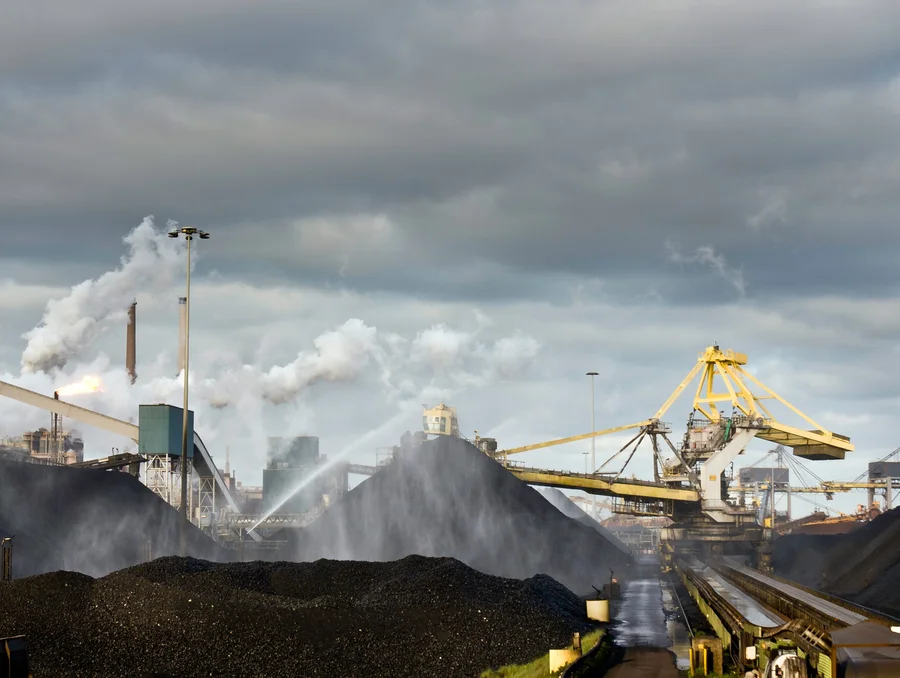The International Council on Mining and Metals is helping drive sustainable practises in mining to tackle thorny Scope 3 GHG emissions.
The transition to a net-zero economy will be metals-and-minerals intensive. There is no escaping this reality. Copper. Lithium. Nickel. Cobalt. Manganese. Graphite. Gold. All are integral to this global venture.
But how these metals and minerals are mined, processed, transported, consumed and recycled will also have a massive say in the pace of global progress on net zero targets.
Greenhouse gas (GHG) emissions arising from the metals and minerals supply chain is a huge issue. The combined Scope 3 emissions of the eight largest mining companies account for 4% of total global emissions. These Scope 3 emissions cover all upstream and downstream activities in any given company’s value chain, and typically account for up to 80% of a company’s total emissions.
Helping oversee mining and energy sustainability is the International Council on Mining and Metals (ICMM). It was founded in 2001, as a CEO-led leadership organisation, as a means to improve sustainable development in the mining and metals industry.
The ICMM says its “fundamental belief” is that, when mined and produced responsibly, minerals and metals can be “transformational”, and that they can “enable social progress and sustainable development within local communities and across entire nations”.
The organisation points out that taxes, jobs, skills, infrastructure and community services are just some of the ways that countries benefit from mining. While committed to maximising these factors, the ICMM also seeks to minimise “the potential for harm to people or planet”.
Rohitesh Dhawan is ICMM President and CEO, and says the organisation does not shy away from uncomfortable truths. “Despite the benefits, our industry has caused harm to people and the planet,” he says. “Our drive to minimise this harm.”

ICMM Mining Principles
This desire, he stresses, is enshrined in its Mining Principles, which he describes as “the essence of what it means to be a member of ICMM”.
These principles are a comprehensive set of 39 ‘performance expectations’ and nine ‘position statements’ on a number of critical industry challenges, including reducing GHG emissions. The idea of the principles is to help the mining and metals industries achieve sustainable development by enabling “ambitious collective action that drives performance improvement at scale”, says the ICMM.
In 2023, the ICMM published guidance to help support mining and metals companies to set impactful short-, medium- and long-term targets for reducing their Scope 3 emissions.
Its Scope 3 Emissions Target Setting Guidance underscores the importance of transparency and engagement with suppliers, customers, investors and regulators in setting targets, to help accelerate emissions reduction throughout the value chain.
The Guidance defines target-setting principles tailored to the mining and metals sector, and is drawn from current EU, US, UK, Canadian and Australian regulatory frameworks, as well as guidance from the United Nations’ High Level Expert Group on Net Zero Emissions Commitments of Non-State Entities.
Acknowledging the differences in commodities and value chains – rather than endorsing a specific methodology – it provides mining and metals-specific context around commonly used approaches.
Dhawan says reducing Scope three emissions is “probably the most important part of meeting global climate goals, but also the most difficult”.
He adds: “That’s because it requires collaboration and partnership. Scopes 1 and 2 are really hard for many sectors but they are largely within your control as an entity. Scope 3 means that you depend on somebody else to do something that allows the emissions from your value chain to come down.”
Fresh thinking needed on Scope 3
Dhawan says that it is only by working with suppliers, customers and others who have exposure outside of the mining industry that “can we bring fresh thinking in and combine it with our extensive knowledge of our own industry”.
He adds that this is the level of “creativity and new thinking” that’s needed to solve the challenge of climate change. “Our ability to manage and influence our Scope 3 emissions is absolutely critical to helping the world achieve the goals of the Paris Agreement,” he says.
Christian Spano is Innovation Director at the ICMM is in agreement. Spano is Director of Circularity at Vale Base Metals, one of the world’s largest producers of responsibly sourced nickel, copper, cobalt and platinum group metals – and is well-placed to comment.
He points out that most of the emissions in the mining industry are “in the product that we produce as an industry and in how it is used in the markets where our customers are”.
“It is about the suppliers and how they supply the inputs that we need.” – Christian Spano, Innovation Director at the ICMM.
He points out that “having a full picture” is of paramount importance for understanding the strategy needed to reduce Scope 3 emissions. “If one thinks about industries that have changed dramatically, it’s in the use of the product,” he says.
He continues: “When I think about all the technologies, the different business models and the drastic changes we need to put in place for Scope 3 emissions to go to zero in the mining value chain. For that to happen we need to innovate at scale across a number of industries, not only in the mining industry.
“I would love my children to live in that world, and the only way we’re going to get there is by working together.”



